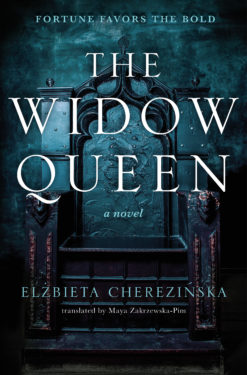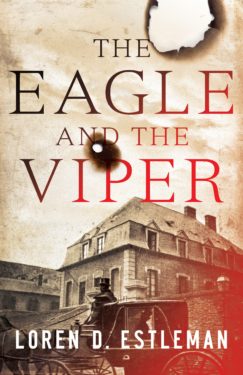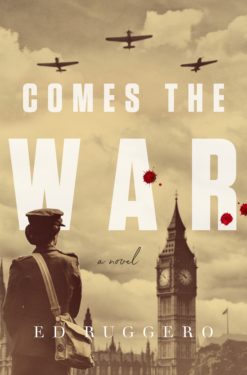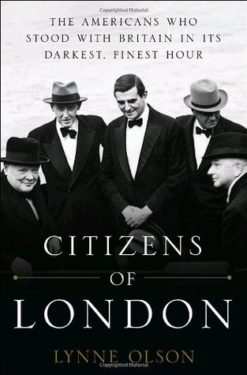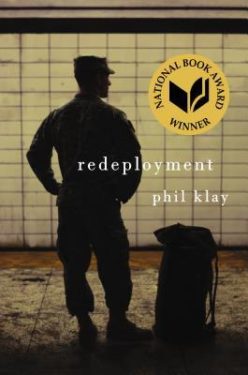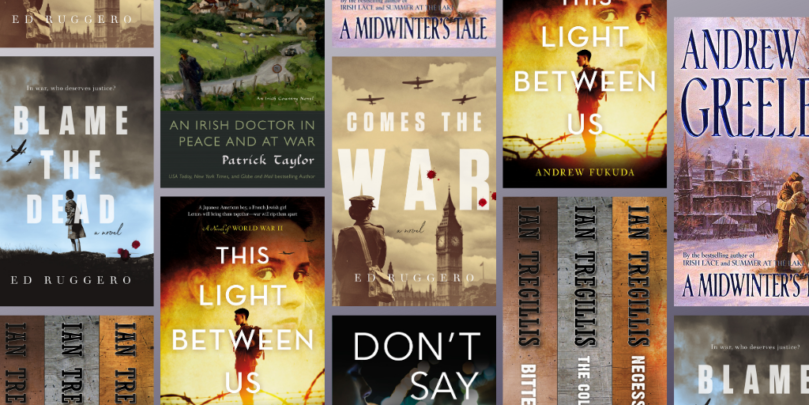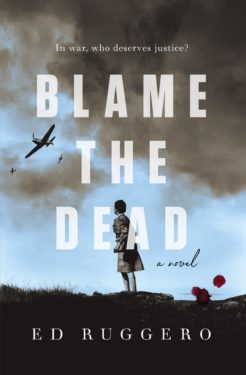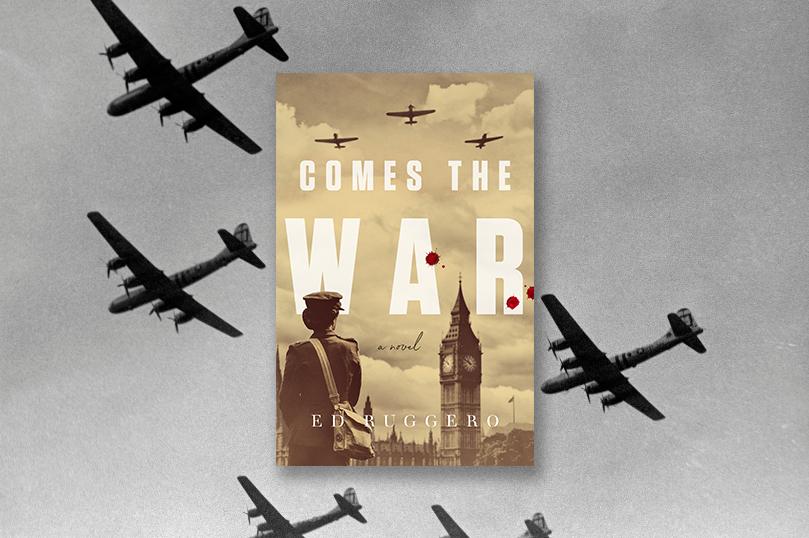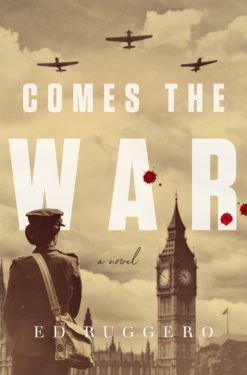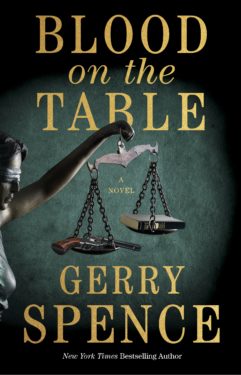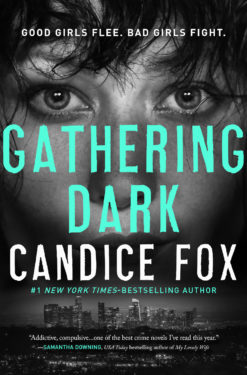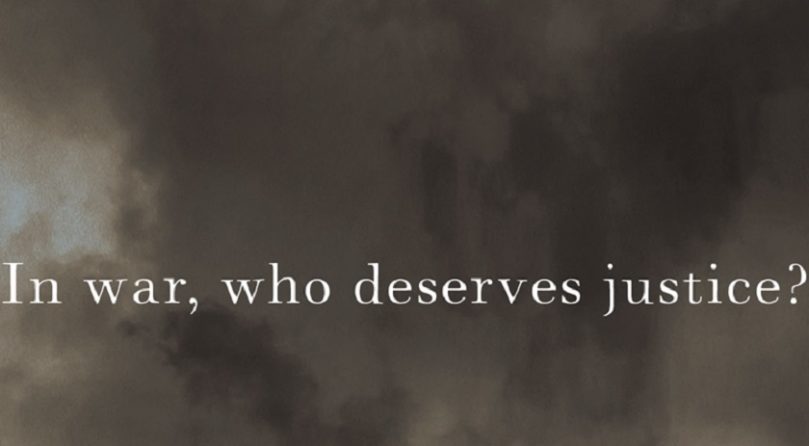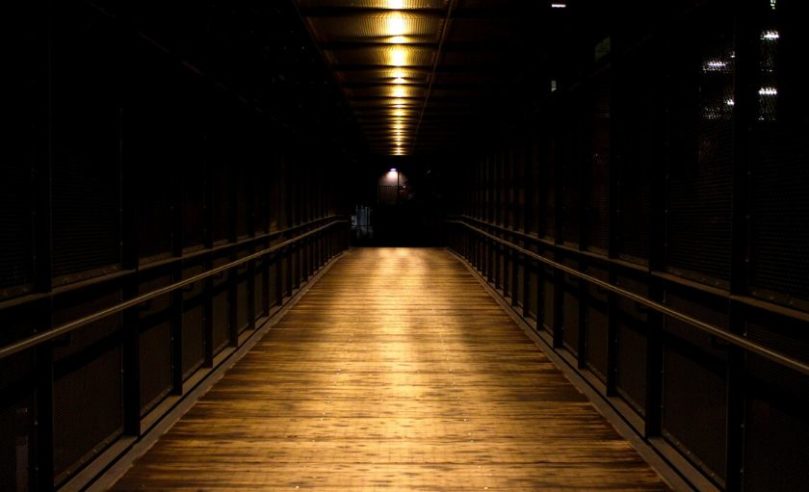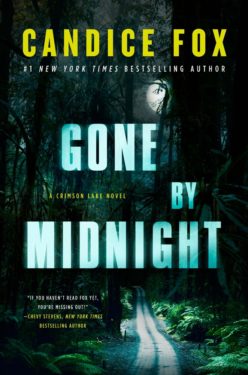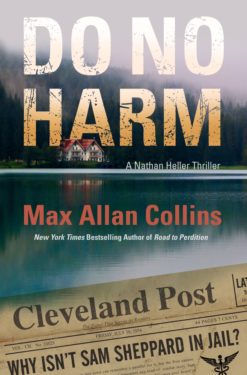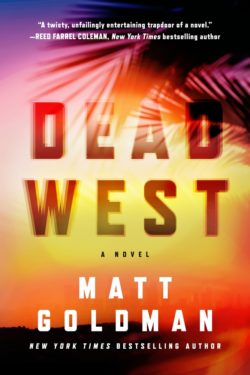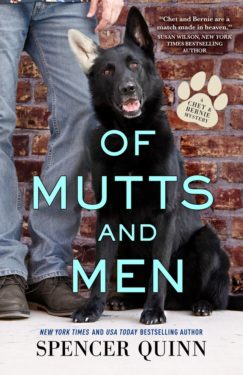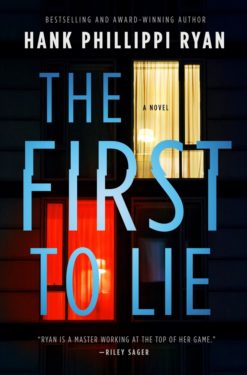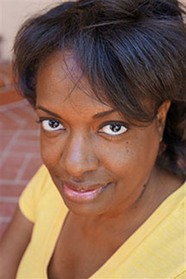opens in a new window opens in a new window
opens in a new window opens in a new window
opens in a new window opens in a new window
opens in a new window opens in a new window
opens in a new window
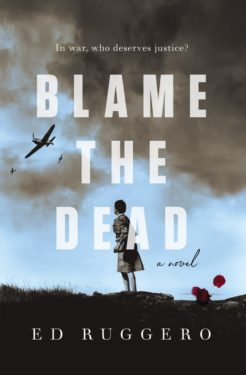
“At the start of this exceptional WWII mystery and series launch from Ruggero (The Academy), Lt. Eddie Harkins, an MP who was once a Philadelphia beat cop, comes across a murder scene near Palermo, Sicily…. Ruggero plays fair with his readers and makes the carrying out of a homicide inquiry in wartime both exciting and plausible.”
Publishers Weekly Starred Review
Ed Ruggero’s Blame the Dead is the thrilling start of an action-packed and timely World War II series by a former Army Officer for fans of compelling historical fiction.
The nurses of the US Army’s Field Hospitals, mobile units that operate just behind the battle lines, contend with heat, dirt, short-handed staffs, the threat of German counterattack and an ever-present flood of horribly wounded GIs. At the 11th Field Hospital near Palermo, Sicily in the bloody summer of 1943, nurses also live with the threat of violent assault by one of their own—at least until someone shoots Dr. Myers Stephenson in the head.
Enter Eddie Harkins, a tough former Philadelphia beat cop turned Military Police lieutenant, who is first on the scene. Although he has never been a detective, Harkins soon finds himself the lone investigator, either because the Military Police are under-staffed or because someone in power thinks this rank amateur will never get close to the real killer. When the hospital commander tries to derail Harkins’ investigation by transferring or harassing key witnesses, it becomes clear to Harkins that the unit is rotten to its core, that the nurses are not safe, and that patients who have survived Nazi bullets are still at risk after they arrive at this place that is supposed to save them.
Harkins fights—and worries that he is losing—multiple battles. He is driven to give hope to nurses who just want to do their life-saving work, to right at least a few of the wrongs around him, and to do penance for sins in his own past. The one bright note for Harkins is a rekindled relationship with Kathleen Donnelly, a nurse from Harkins’ old neighborhood; but even that is complicated when Donnelly becomes a victim.
Blame the Dead will be available on March 3, 2020. Please enjoy the following excerpt.
CHAPTER ONE
2 August 1943
Near Palermo, Sicily
0600 hours
“We got a waver,” Lieutenant Eddie Harkins said when he spotted the GI up ahead. A soldier was flagging them with both arms, right near a dirt-road turnoff marked with a hand-lettered sign saying 11TH FIELD HOSP.
“Two hands. Must be more than one bedpan missing.”
Harkins directed these comments at his driver, Bobby Ray Thomas, who sat shivering in the passenger seat of their jeep. Malaria. Sweating and shaky, too sick to drive but not wanting to let Harkins down. Harkins had been behind the wheel all night and now, just after dawn and coming off twenty-four hours straight duty, he and Thomas were exhausted bone deep.
Since the invasion began on July 10, over a hundred thousand GIs and British Tommies had poured ashore, engulfing first the southern and then the western end of the island, overwhelming the roads until nothing could move, drinking the wells dry, looting stores of wine, driving up prices of everything from whores to fresh food, leaving the detritus of battle covering the sun-scorched landscape. Every roadside was littered with discarded ration cans and cigarette packs, fire-blackened German and Italian war equipment, bloody bandages, used condoms, splintered furniture, filthy clothing, dead burros, and the occasional unburied enemy soldier, bloated and black and stripped of his shoes.
“We’ve turned this place into a shithole,” Harkins said to Thomas that morning, when first light revealed that they’d parked in a field alongside a dozen dead cows.
“We liberated them from the Germans,” Thomas had offered, mock-serious. “And from the Fascists.”
“I bet they’re overcome with gratitude,” Harkins countered. He got his red hair and light blue eyes from his mother, but he’d inherited from his father a mistrust of all landlords and liberators.
For the past six days, Harkins and his platoon of twenty-five military police soldiers, riding in eight jeeps, had been shepherding columns of American war machines—tanks, trucks and wreckers, jeeps and trailers hauling bulldozers, ambulances and big Dodge staff cars, all of it crammed onto the patchwork of dirt trails that passed for roads in western Sicily, all of it headed to Palermo, where Harkins had promised his men a dip in the sea. In the meantime, everyone was struck dumb by the heat.
Harkins’ neck was sunburned, raw. There were salt stains on his trousers where the sweat had dried repeatedly; his socks were damp as dishrags inside his GI shoes.
Thomas opened his eyes; his voice was cracked and just loud enough to be heard over the jeep engine.
“We should have invaded Ireland,” he said. “I read it’s always green and cool there.”
“You should write to General Eisenhower,” Harkins said.
Thomas dreamed of someplace cool. Harkins, who’d been running on little sleep for what seemed like months, craved rest. Now it looked like they’d be sidetracked; Harkins hoped it wouldn’t be for long.
The soldier up ahead had spotted the military police brassards they wore, big armbands with “MP” in white letters. This happened more than Harkins would have expected—GIs coming to them—but it was usually for help with some small, impossible-to-solve crime: someone took my pocketknife, somebody stole my poker winnings, some jackass pissed on my bedroll.
Harkins let the jeep roll to a stop. “Big crime spree here?”
The soldier, whose helmet had the red cross on white circle of a medic, saluted then jumped into the back. He looked shaken, a little bug-eyed.
“Glad you guys were driving by,” the medic said. “Straight ahead. You’ll see everybody. Look for First Sergeant Drake.”
The dirt track into the hospital compound was lined with dozens of U.S. Army tents of various sizes, all of them sun-blasted and coated with dust. Harkins had seen medical units positioned throughout the battle zone, chains of care starting with small aid stations just behind the front. There, medics and perhaps a single doctor treated minor wounds and injuries and, for more serious cases, stabilized a wounded soldier for evacuation to the rear.
Here—Harkins estimated they were some twenty-five to thirty miles behind the front—field hospitals did major surgery. Soldiers who required long-term care were moved to more permanent station hospitals even farther from the fighting. A GI in Harkins’ platoon, a Californian named Maretsky, talked endlessly about the “million-dollar wound,” one that didn’t hurt too much and wouldn’t mean permanent disability, but was serious enough to warrant evacuation all the way back along the chain to some cushy stateside hospital, with “fresh orange juice and fresher nurses.”
A hundred yards along, Harkins found a small crowd of fifteen or twenty soldiers standing in the wide alley between two large tents. Some of them had their heads pressed together, whispering. A few stood with arms folded, looking worried. The crowd parted a bit and Harkins saw the body, felt the adrenaline jolt he knew from his days as a street cop in Philadelphia. Beside the corpse was a big man wearing the stripes of a first sergeant and a slouch campaign hat that was twenty years old if it was a day. He looked at Harkins, checked the MP brassard, and tipped his chin down in silent greeting.
The dead man lay on his stomach in the dust, left leg straight behind, right leg cocked, arms shoulder high and bent at ninety degrees, like he was demonstrating how to crawl beneath barbed wire. His helmet was a few feet away; his hair on the right side was dark and curly. The top left side of his skull was a tangle of blood and brains. Exit wound.
In his six years as a patrolman, Harkins had worked a couple dozen murder scenes, and five or six times he’d been the first cop to arrive. The exhaustion he’d felt a moment ago faded as his training and the adrenaline kicked in, like someone had flipped his own personal power switch to “on.”
Secure the crime scene.
He looked around. Didn’t seem much chance the killer was lurking in the crowd, waiting to shoot someone else.
A second man was beside the first sergeant, close to the victim’s head, bent over, hands on knees.
“I’m going to ask you to move away from him,” Harkins said. “Just move back a few yards. Please.”
The man straightened up but didn’t move. He had a stethoscope in his front pants pocket, two silver bars of a captain on his collar. A doctor.
“He was right behind me,” the doc said. “Running for the shelter right behind me. He said something and I kept going. But he never made it.”
Harkins looked in the direction the dead man had been running. About twenty yards along, three rows of sandbags marked the top of a slit-trench air-raid shelter.
The first sergeant put his hand on the doctor’s shoulder, gently nudging him back.
“What did he say?” Harkins asked.
“I don’t know. I couldn’t hear because of the yelling and the sirens and ack-ack.”
There’d been a German air raid at first light, one of those surprise last-ditch sorties by whatever shattered remains of the Luftwaffe wanted to test Allied air control of Sicily.
When the first American and British troops came ashore on July 10, most of the Italian units collapsed immediately, surrendering rather than risking death for their cartoonish dictator, Mussolini. But the Germans were proving as formidable here as they had in North Africa, as they no doubt would prove formidable as they backed up all the way to Berlin, if that day ever came.
“Maybe it was—what do you call it, a strafing run.” This from a nurse in the crowd.
Harkins looked around for evidence that the German plane had machine-gunned the area, but there was no other damage. The staff just didn’t want it to be a shooting at close range. A murder.
“I’m First Sergeant Drake,” the big man said. He did not salute or offer a handshake, just gave Harkins a once-over.
“Lieutenant Harkins, military police.”
Drake’s eyes flicked to the MP brassard.
“I guess you figured that part out,” Harkins said. “Anyone touch the body?”
“You mean besides the murderer?” Drake said, a bit smartass.
Conscious of the twenty sets of eyes on him, Harkins knelt beside the corpse for a closer look. There was some stippling below the wound, a tattoo of small black dots from the powder, no contact burn from a barrel. The shooter had been behind the man, holding the gun at an upward angle. The entrance wound was large; Harkins guessed a government-issue .45 caliber pistol. Only about fifty thousand of those on the island. The exit wound, left side, top of his head, was massive, pieces of skull mixed with blood-soaked hair.
Harkins saw, from the corner of his eye, someone step into the clearing Drake had created around the body.
“I came as soon as I heard, First Sergeant.”
Harkins turned to see a tall full-bird colonel with a narrow face and sharp widow’s peak. He wore a clean uniform with a silver eagle on his right lapel point and the caduceus of the Army Medical Corps on the other. Another doctor, probably the hospital commander. Behind him, a nurse wearing captain’s bars. She put her hand to her mouth when she saw the body up close.
“Oh, my God,” the colonel said. “It’s Stephenson, right? Can’t we get him moved?”
“I’d rather we didn’t move him just yet, sir,” Harkins said.
“Who are you?”
Harkins thought about saluting, skipped it since Drake kept his thumbs hooked into his belt, like he was waiting for a bus.
“Lieutenant Harkins, military police.”
Harkins wanted to pass this mess off to the provost marshal, the command section that had jurisdiction for crimes committed in the war zone.
“I think we should wait for the provost, sir. And we might want to get some photos.”
A couple of spectators sucked in their breath.
“Crime scene photos,” Harkins explained, eyes still on the commander. “For the investigators. It’ll be helpful in the long run.”
The colonel studied Harkins for a moment, then looked at Drake and tilted his head to the crowd.
“You people go back to work now, hear?” Drake said to the circle of onlookers.
The enlisted men moved smartly; the officers—doctors and nurses—either scattered or made a pretense of moving. Clearly the first sergeant was a not a man to trifle with.
“Probably a good idea to wait a bit, Colonel,” Drake said, low, so no one else would hear.
“It’s just that poor Stephenson is there, with his head blown open,” the colonel said. “And it’s upsetting the rest of the staff.” It was a polite dismissal. “I’d like to see him taken to the morgue, First Sergeant, if you don’t mind.”
After a beat, Drake managed an unenthusiastic, “Right away, sir.”
The colonel walked away without introducing himself to Harkins.
The first sergeant stepped back and pointed at two orderlies, who had appeared with a canvas litter. When the privates moved toward the body, Harkins nodded to Bobby Ray Thomas, who blocked them. The stretcher-bearers stopped, unsure.
“Sorry, First Sergeant,” Harkins said. “All due respect, we should wait for the provost, for the investigators. They’re going to want to see the scene.”
Drake looked a little sad, like he was about to get into something he’d tried to avoid. He was older than most noncoms Harkins knew; in his late thirties, at least, with crow’s-feet framing small brown eyes. Probably Regular Army before the war.
“You heard the colonel, Lieutenant,” Drake said, stepping closer. He had five inches on Harkins, who was five ten. Thick across the chest and shoulders, with a slight paunch. Big arms and hands. Harkins imagined the enlisted men in the unit avoided pissing him off. Also not a bad strategy for lieutenants.
“This is my hospital, and that’s one of our docs,” Drake said, calm, maybe a bit menacing. “Go find a traffic jam that needs unscrewing.”
Harkins had been chewed out by lots of sergeants when he was a trainee back in the States, but here in the combat zone most noncommissioned officers at least made a show of military courtesy, even for junior officers. Harkins felt his hands tense into fists, forced them to relax. No margin in arguing with the ranking noncom in front of his people.
“It may be your hospital, First Sergeant, but for the moment it’s my crime scene,” Harkins said, his voice even, almost a whisper. “I’m sure you and the colonel are going to want a thorough investigation. We’re not talking about some dumbass being late for formation. Pretty sure we’re looking at a murder here.”
Behind the first sergeant, the orderlies fidgeted with their stretcher.
“Are you even a real cop?” Drake asked.
“I was a cop in Philadelphia before the war.”
“A detective?”
“A patrolman.”
The whole truth was that Harkins felt like an accidental solider. He’d enlisted right after Pearl Harbor, only partly because of what everyone called, as if it were one word, the-dirty-Jap-sneak-attack. He’d also joined to get away from a brewing scandal at home: a woman who was someone else’s wife, and a husband who was both suspicious and a detective in the same precinct as Harkins.
The army made him a military policeman because he’d been a Philadelphia cop, and he got sent to Officer Candidate School because of good scores on some aptitude tests, and now here he was, battling the Hun, or at least battling sunstroke. He was determined to keep his head down, do what he was told and whatever good work he could, and not get killed.
“Look, I’ve secured dozens of murder scenes,” Harkins continued. “Waiting for detectives. I know what they want to see.”
The first sergeant shook his head. “Whole goddamn army full of amateurs. Did you at least send for the provost?”
“Just about to do that. And when he gets here, he’s going to make better progress if the crime scene isn’t compromised.”
“Make it quick,” Drake said. “Then let’s get him out of here. We got a hospital to run.”
It was just at that moment, when Harkins was savoring his little victory, that Bobby Ray Thomas fainted. Passed out cold. Didn’t crumple at the knees, but fell like a tree onto his face. A couple of the nurses reached him first.
“He’s got malaria,” Harkins said. “Fevers, then chills.”
Drake pointed at the orderlies with the litter. They rolled the driver, who was barely conscious, onto his side and got him loaded.
“We’ll get some fluids in him, see if he should be admitted,” one of the nurses said.
When Harkins turned around again, Drake wore an unfriendly smile.
“Crackerjack operation you’re running, Lieutenant. The investigation is obviously in good hands.”
Then the first sergeant turned on his heel. “OK, back to work,” he said to the few people remaining. “This shitshow is over.”
This day keeps getting better and better, Harkins thought.
Harkins asked the duty sergeant to send a runner to the provost marshal at corps headquarters. Since everyone was on the move, very few units had static command posts. But the headquarters of the parent unit, II Corps, was gigantic, with scores of vehicles and hundreds of soldiers—mail clerks and typists, radio operators and mechanics, cooks and translators and photographers—who did everything but fight. Harkins had read somewhere that for every front-line GI firing a weapon, there were seven men behind him keeping the beast fed and in motion.
With so many men moving around, many of them with their own vehicles, it was inevitable that some GIs spent chunks of time doing things other than what they were supposed to be doing; “goldbricking,” in Army lingo. And not every soldier spent his time well.
In fact, Harkins thought there was a sense of barely restrained lawlessness behind the battle lines, which were moving steadily, bloodily eastward. Men who might have been upright citizens their entire lives were tempted to petty crime; men who were already criminals picked up where they left off at home: robbery, rape, assault. Harkins had seen it in North Africa, where the local people whose lives were overturned by war were brown and powerless and unable to communicate with the GIs. Sicily was more of the same. As the fighting pushed east, there was a vacuum of authority behind the front, and the zone of chaos expanded; it would take a while for the Allies to re-establish the local police functions and civil authority.
He doubted the provost himself would come, but he’d send a deputy. In the meantime, Harkins asked a soldier to cover the body with a blanket, then approached a few of the nurses who drifted back after Drake had cleared the area. From them Harkins learned the victim was Captain Meyers Stephenson, a surgeon. The doctor who’d been running ahead of Stephenson was a Captain Gallo.
“And that colonel was the hospital commander,” one of the women said. “Boone. Colonel Walter Boone.”
“And that first sergeant is Drake?”
“Irwin Drake.”
“How about that nurse, the captain? She came up with the colonel.”
Two of the women exchanged glances but said nothing.
“You do know who I’m talking about, right?”
Finally, one of them spoke up. “Captain Palmer. Phyllis Palmer. She’s the head nurse.”
Harkins wrote the names in his pocket notebook as the nurses gave him a rundown of the morning. The sirens went off while it was still totally dark. Anyone not on duty headed for the slit-trench shelters; doctors, nurses, and orderlies in the recovery wards stayed with their patients and surgery continued in blacked-out tents. There was an antiaircraft unit, four trucks with quad .fifty machine guns, on a small hilltop beside the hospital compound. It would have been impossible to hear anything while those were firing, and none of these women had noticed Stephenson until the all clear sounded.
Harkins was still listening and writing when a jeep pulled up with a captain in the passenger seat—a deputy provost, Harkins hoped—and a private in the back. Time to turn this over to someone else and get some sleep. Harkins thanked the nurses and said someone would get back to them with more questions.
The captain climbed out of the vehicle, waved his hand in front of his face in an effort to clear the dust. He didn’t approach Harkins or the body, so Harkins walked toward him. Stuck his notebook in the pocket of his shirt, which was salt-stained, sweat-soaked, and already sticking to him. Ninety degrees at seven in the morning. Fucking August in Sicily. Harkins had been perpetually sunburned in North Africa, where he’d landed back in November as part of Operation Torch, the first big American offensive of the war in Europe. He’d probably stay lobster red until he left this island, too.
“Morning, sir. I’m Lieutenant Harkins.”
“Captain Adams, deputy provost.”
Adams held an army-issue canvas briefcase in front of him. His face was shiny with sweat, his collar and shirtfront dark. On his left collar point was the insignia of the Judge Advocate General Corps.
“You asked for a photographer, right?” Adams said, punching back the round spectacles that were sliding down his nose.
The man who climbed out of the jeep wore a private’s single stripe but looked like he was forty. He had a camera with a flash attachment on a strap around his neck, a cigarette stuck to his lip.
“You a real photographer or an army photographer?” Harkins asked.
“Ten years shooting Chicago crime scenes,” the private said, eyes scanning past Harkins to the body beyond. “I guess I know what to do.”
“Make sure you get some ground-level shots, OK?”
“Ain’t my first rodeo, Lieutenant.”
“All right, then.”
Harkins turned and walked toward the body, Adams falling in beside him, holding his canvas bag even tighter.
“Captain Meyers Stephenson. Surgeon. Single gunshot to the head, a forty-five, I think. Probably as he was running toward the shelter during the air raid this morning. All that noise.” Harkins pointed at the antiaircraft battery. “I haven’t found anyone who saw or heard anything.”
Harkins knelt beside the draped corpse to remove the blanket for the photographer, and then realized Adams wasn’t with him. The captain had stopped several paces away, looking sick.
“You OK, Captain?” Harkins asked.
“I . . . uh . . . I’ve never been to a crime scene.”
“Oh,” Harkins said. He lifted the blanket, used it to fan away gathering flies. They buzzed around his face instead, droning like little fighter planes.
“He’s gonna get ripe fast in this heat,” the photographer said as he started shooting.
“You a criminal lawyer, sir?” Harkins asked.
Adams had a tight grip on the satchel, like he was trying to wring water from it. He removed his helmet. A few thin strands of hair stuck to his sweaty scalp, which he wiped with his shirtsleeve. Some flies attacked, and Adams waved one arm, to no effect.
“What? Uh, no. I was writing contracts for the War Department in Washington when this chance to come overseas opened up.”
“You volunteered to ship out?”
Adams, who had been staring wide-eyed at the body, now looked at Harkins, tried a weak smile. “I didn’t want to have to tell my grandchildren that throughout the whole of the great World War Two I lived in Maryland, where I was wounded once by a stuck typewriter key.”
“OK, then,” Harkins said, nodding. “Let me show you what we have. Can you come a little closer, sir?”
Adams took two short steps toward the body. Harkins used his pencil to point to the entrance wound. Adams nodded, his lips pressed together.
“Come around this side,” Harkins said, directing Adams so that he could see the top of Stephenson’s head. “Exit wound.”
“Is that . . . ?”
“Skull fragments,” Harkins said.
Adams brought his canvas bag to his mouth and turned away. He made it to a drainage ditch behind the hospital tent before losing his breakfast.
Harkins stood and got out of the way of the photographer, who was unfazed by the scene. Then he followed the captain.
“You all right, sir?”
Adams nodded yes, then leaned over again, choking up a bit more.
Harkins rubbed his eyes, which felt like they had sand beneath the lids. The photographer was shaking his head, probably thinking what Harkins was thinking. No way Captain Adams was going to take over the investigation this morning.
“Are you the provost marshal?”
It was Drake, the hospital first sergeant. When he walked up to Adams, the lawyer wiped his mouth with the back of his hand. Drake did not salute.
“Captain Theodore Adams, Sergeant. Deputy provost.”
“That’s first sergeant, Captain,” Drake said.
Harkins had made this mistake before. It took a long time and a lot of work to become a first sergeant, and the job came with massive responsibility. Drake was the top noncommissioned officer in the unit and oversaw the daily operation of the hospital outside of the actual medical work: everything from who set up the tents and where to who pulled guard duty. He had to look out for two hundred enlisted men and thirty-plus officers, all so that the medicos could concentrate on saving lives. First sergeants deserved to be called by their full title. Still, Harkins thought, Drake didn’t have to be such a gold-plated ass about everything.
“Right,” Adams said, intimidated. “First Sergeant.”
“You going to take over this investigation from our patrolman friend here?” Drake asked, tilting his head toward Harkins.
“I’ll initiate the paperwork, yes.”
“Can we move the body now?”
Harkins looked at the photographer, who gave him a thumbs-up. He had the shots. Harkins met Adams’s eyes and nodded.
“Yes, ah, First Sergeant,” Adams said. “We can move the body now.”
“You got a stomach bug?” Drake asked.
“No, I . . . I’ve never seen a murder victim before.”
Drake looked at Harkins, who could almost read the older man’s mind. Fucking amateurs.
“Well, Captain, you’re going to need a little more grit than that to hunt down a murderer.”
Drake motioned Adams closer to the body, then put his arm around the man to keep Adams from turning away. The first sergeant was either teaching him or messing with him. Harkins thought it a toss-up.
“Entrance wound at left occipital bone. Exit at the frontal bone, of course, forward of the coronal structure, I’d say. Left cerebral hemisphere destroyed pretty completely.”
As Drake talked and pointed, the flies came back, and that was all Adams could take. He stumbled back to the drainage ditch.
Harkins stepped beside Drake, who said, “So far, looks like neither you or the deputy provost are up to the task.”
Harkins looked around. The orderlies Drake had brought along were not close enough to overhear.
“You don’t seem all that upset by what happened here this morning. First Sergeant.”
Drake looked at Harkins for a long few seconds, looking sad, maybe a tiny bit amused. “Are you that much of a dumbass, Lieutenant? You think the first person you talk to is going to, what? Confess?”
Harkins, who’d been hoping exactly that, didn’t answer.
“Now, shall we do what the colonel wanted and get this body out of here?” Drake said.
“Sure.”
When Drake walked away, Harkins motioned to the orderlies. “You got a morgue, right?”
One of the men spat a stream of tobacco juice into the dust. “Yeah, but they won’t keep him long. In this heat he’ll be cooked like a Coney Island dog in two hours. Got a temporary cemetery about a half mile from here.”
They unfolded the stretcher, then covered Captain Stephenson with the blanket, gently tucking it in along the sides as if to make him comfortable. When they lifted him, Harkins—acting more out of habit than faith—crossed himself.
He found Adams sitting on a supply crate around the corner of the big tent.
“Well, I made an ass of myself, I guess,” Adams said.
“Lots of people lose it at their first crime scene.”
“Yeah, but I gave our friend the chance to show he’s boss, right?”
“I’m pretty sure he never doubted that he’s the boss,” Harkins said. The adrenaline rush was fading. He wanted to check on Thomas, then get back to his tent and close his eyes.
Adams stood. “What now?” he said.
“What do you mean?”
“I’m going to start the paperwork saying that there’s been a murder here,” Adams said. “How are you going to proceed?”
“I’m proceeding back to my bivouac,” Harkins said. “I’m not an investigator. That’s your job.”
“I’m not a detective.”
“Neither am I. I was a beat cop. You need somebody popped in the head with a nightstick, I’m your guy. But this is serious stuff. Aren’t there any detectives or former detectives with the provost marshal?”
“We’re stretched thin,” Adams said. “This one belongs to you and me.”
“Captain, I’ve been on duty for twenty-four—” Harkins looked at his watch. “Make that twenty-six hours. My driver dropped over with a fever. We were headed back to link up with the rest of my platoon and get some sleep when we got flagged down. Hell, we just happened to be driving by.”
“Good thing,” Adams said. When Harkins didn’t respond, he added, “Well, good thing for me, I guess. Not so great for you.”
Harkins pressed the heels of his hands to his eye sockets. He wanted to look up and see a potbellied Philadelphia detective, somebody with a bourbon habit and thirty years’ experience. But there was just Adams, with his crumpled briefcase and a string of vomit on his shirt.
“Look, I’ve done exactly zero investigations, unless you count contract scams,” Adams said. “You’ve at least got some idea of what to do next, right?”
“Kill myself.”
“What?”
“I said I guess I do, but I’m going to need help. There’s got to be a hundred thousand GIs on this island. Somebody had to have been a detective, or at least a sheriff.”
“Absolutely,” Adams said. “I’ll start looking right away. In the meantime, we both better get to work.”
CHAPTER TWO
2 August 1943
0800 hours
After Adams went back to a desk somewhere, Harkins found Stephenson’s tent and looked through the dead man’s gear. There was a wooden footlocker stenciled STEPHENSON, MEYERS, CAPTAIN, USA MC.
Harkins used the ax from his jeep’s pioneer kit to break the lock. Inside the chest he found some toiletries, two of the new paperback books—mysteries, by the look of them—that were available to every GI, some clean and some dirty clothes, a half-dozen medical journals, seventy-two dollars in cash, a half-empty bottle of Tennessee whiskey, and three pairs of women’s panties, different sizes, none of them especially clean. Under the panties Harkins found three dozen condoms, which seemed like a lot for a guy who had a full-time job. No personal letters or even letter-writing materials. There was a pistol belt with a canteen and an empty holster hanging from the central tent pole. The weapon was probably stored with the supply sergeant, since doctors did not routinely carry sidearms.
He looked around the tent, which Stephenson had to himself, though there were two unused cots. He walked outside along a line of five other pyramidal sleeping tents, poked his head in one or two whose inhabitants were elsewhere. Looked like Stephenson was the only doctor who lived alone.
Next Harkins headed for the mess tent, where he found three nurses sitting by themselves, heads close together, whispering. The side walls of the tent were rolled up to let the air flow through, but the sun beating on the roof drove the temperature up. Two GIs in stained and sweaty T-shirts hovered over a grill, serving late breakfast to people coming off shift. The place smelled like bacon and burned canvas.
“Mind if I sit down, ask you a few questions?”
A first lieutenant with tight, dark curls said, “You doing the investigation?”
“For now,” Harkins said, dropping onto a bench at the rough lumber table. There was one dirty mess kit in front of the three women, three cups of coffee, and the bottom of a shell casing, sawed off for an ashtray and filled with butts.
“Name’s Harkins. Eddie Harkins.”
“I’m Felton,” the first lieutenant said. “This here’s Savio. And Melbourne.”
Felton held a cigarette between long fingers; the nails on one hand were ringed with a crust of something dark. Dried blood, maybe. The other women were both second lieutenants, one grade below Harkins and Felton. Savio had black hair and almond eyes and could pass for a local in Sicily. She was smoking and fidgeting with a lighter, flipping it open and lighting it; flipping it closed. Her fingernails were chewed to the quick. Melbourne had big shoulders, an athlete; straight hair pulled in a tight bun and a small gap in her front teeth. Even sitting down, she looked tall.
“You a detective?” Melbourne asked. “I mean in real life.”
“No. I was a beat cop in Philadelphia.”
“The army doesn’t draft detectives?”
“None of the ones I knew,” Harkins said. “And I wasn’t drafted.”
“Great,” Melbourne said. “So we’re all volunteers. Patriots.”
Harkins wasn’t sure he had the patience this morning for a hostile interview. Maybe Melbourne was as tired as he was. Maybe she’d been a friend of the victim.
“What can you tell me about Captain Stephenson?” Harkins asked.
The three women exchanged looks with each other, said nothing.
“I went to Stephenson’s tent,” Harkins tried. “Looks like he lived alone. Was the only doc who lived alone. That seemed kind of odd.”
“He was one of those guys people either liked or hated as soon as you met him,” Felton, the senior nurse, said. “Some of the docs liked him, I guess, or at least thought he was fun to be around. Though apparently not enough to share a tent with him.”
“Any idea why?”
Nothing.
Harkins’ head swam like he’d just been tagged with a good jab. He wished he’d had a few hours’ sleep, even an hour. He wished he’d paid more attention to how detectives back home conducted interviews.
Just behind the nurses and under the rim of the tent, he saw the legs of a stretcher detail, four men carrying a body wound head to toe in a dirty sheet. A pair of filthy boots, possibly the dead man’s, stood at the foot of the stretcher.
“Any idea who might want Stephenson dead?”
“I don’t know about dead,” Felton said. “But he was a train wreck, a disaster. A lot of people who wanted him gone. Transferred out of the hospital.”
“Why?”
“Last week a nurse passed out drunk in his tent—this is down near Gela. She choked on her own vomit.”
“She make it?”
“No.”
“Was it Stephenson’s fault?”
Felton let blue smoke drift from her mouth, picked a speck of tobacco from her bottom lip with thumb and forefinger. Harkins waited.
“Who knows?” Felton said. “He said he’d left the tent before it happened, and somebody found him passed out in the latrine the next morning, so he left her at some point. But it could have been after.”
“Stephenson gave liquor or tried to give liquor to lots of nurses,” Melbourne said. “Whitman accepted. One time.”
“How do you know it was only one time?”
“She was like most of us. Tried to avoid Stephenson mostly.”
Felton said, “Whitman was a little bit lost, I think.”
Savio spoke up for the first time. “I’m not sure it’s going to be worth getting in hot water with Palmer,” she said to the other two women, her eyes on the table.
Harkins flipped a page in his notebook. “Is that Captain Palmer, the head nurse?”
“Yeah,” Felton said.
Felton watched the smoke curl from the end of her cigarette. Melbourne, her hands clenched like she was about to hit someone, watched Harkins. When a cook dropped a metal tray, Savio jumped, fumbling her lighter.
“Are other people in danger?” Harkins asked.
“I don’t think anybody anticipated this,” Felton said. “Murder. I mean, Jesus.”
Harkins said, “Has there been other violence?”
“Depends,” Melbourne said. “You consider it violent when a man shoves you up against a cabinet or a table and grabs your tits, grabs your ass? Tries to kiss you on the fucking mouth?”
Harkins hadn’t expected the women to talk like every other GI he’d met in nineteen months in the army. He looked down at his notes. “That stuff goes on here?”
“Every goddamned day,” Felton said. She glanced at Savio, who was petite and looked twenty, tops. “To some more than others.”
The three women traded looks again. Harkins took a breath. As a young patrolman taking witness statements, he’d been swayed several times by what the older detectives called “fucking sob stories.”
“Somebody is always going to try to sell you some bullshit story that makes them look better,” a twenty-year veteran named Tenneato had warned him. They’d been standing beside a gut-slashed corpse that lay in an icy gutter, stomping their feet and trying to keep warm while they waited for a captain.
“Or they’ll see the cops around and think, ‘This is when I get back at my prick of a neighbor,’ and you’ll hear all kinds of stuff that’ll get your investigation absolutely nowhere. Stuff that’ll just waste your time. Gotta take all that shit with a grain of salt.”
Harkins didn’t have enough time on the force to become as cynical as Tenneato had been, but he was wary of being led down some sidetrack that would do nothing but make this case more complicated. He wondered for a moment if Adams would really look for a replacement investigator, or if that was a load of crap, too.
“Stephenson do those things?” Harkins asked.
“Yeah,” Melbourne said. “Captain Meyers Stephenson. Talented surgeon; big jock at Cornell; fancy New York family; regimental boxing team, if you can believe that. And a first-class sonofabitch. Thought we were all here, the nurses that is, for his amusement.”
“Satisfaction,” Felton said.
“Gratification,” Savio said.
Harkins had heard stories about what went on between doctors and nurses at these hospitals. The only American women in theater were nurses and Red Cross Donut Dollies. Tens of thousands of GIs fantasizing about a hundred, maybe a hundred and fifty women scattered among a score of medical units and hospitals across the whole island. Most of the GIs would never even see an American woman, much less meet one; the odds were terrible. Unless you were a doctor. It was an unchallenged truism among the sex-starved soldiers that doctors lived hedonistic lives, kept harems dressed in olive drab.
“So Stephenson was the one pushing people, uh, pushing women up against cabinets and stuff?”
“He was one of them,” Savio said.
“The worst one,” Melbourne said.
“How many women did he do this to?”
“Half a dozen, easy,” Felton answered, stabbing her cigarette into the pile of butts.
Harkins looked up from his notes. “How many nurses you have here?”
“Eighteen when we’re at full strength.”
“Stephenson cut a wide swath, huh?” Harkins said. “He bother Whitman?”
“Don’t know. It looked like she went to his tent willingly,” Felton said.
“Or was too drunk to resist,” Melbourne said. She and Felton looked angry; Savio looked fragile.
“He do it to you?” Harkins asked Felton.
“Once,” she said. “I told him that if he did it again or if I heard of him doing it to another nurse, I’d cut off his dick with a dull knife.”
“That’s what you felt like doing to him?” Harkins asked.
Felton gave a little snort. “Come on, Lieutenant. If you’re any kind of investigator you’re going to find out I said exactly that in front of ten people. I told you to save your skinny Irish ass from getting all excited, thinking you caught the murderer in the first hour.”
Harkins rubbed his eyes with thumb and forefinger. Drake had said almost exactly the same thing to him.
Still not a detective, he thought.
Felton leaned forward, jabbed an index finger onto his notebook. Falling ash from her cigarette stuck to the damp page. “I didn’t shoot him. Write that down.”
“Was anyone else angry enough to do this?”
Felton lit another cigarette, one-handing a lighter. She said, “Who knows what people are capable of when they’re pushed?”
Harkins was having a hard time getting from what sounded like predictable grab-ass—not pretty, but nothing that struck him as criminal—to motivation to shoot a man in the head at close range.
And then Savio started to cry. Her lips didn’t tremble, her breathing didn’t change, but fat silver tears rolled from the bottoms of her eyes. Melbourne put an arm around the smaller woman and the two of them got up and walked out of the tent.
Harkins watched them go, realized that he’d been hoping to run into a dead end, or that some clear reason for Stephenson’s murder—along with a killer—would just drop into his lap and he could go back to his platoon.
So far, the nurses’ story was all he had. He’d never been that cop who cut corners, so he had to follow it.
He stood, pulled his canteen cup from his pistol belt, and walked to a row of big pots sitting atop gas burners. Squinting against the steam, he scooped a helping of coffee and grounds, sat down again.
“Any of the other docs do this kind of stuff to the women, the nurses?” he asked Felton.
“Stephenson was the worst, but there are a couple of others who’ve behaved badly at some point or other.”
“Colonel Boone know about this?”
Felton took a long pull on her cigarette, then exhaled in a slow sigh.
“People complained,” she said. “Nurses complained. He knew. Palmer knew.”
“And Boone never did anything?”
“Oh, yeah, he did plenty. Lectured us on how we shouldn’t wear our uniforms too tight and how we should and shouldn’t spend our free time and even whether we walked someplace alone at night. He thought everything that was happening was our fault. He always took the doctors’ side, like he was afraid to call them on this shit.”
The handful of commanders Harkins had worked for in his time in uniform had various levels of ability—one was a certifiable idiot, he thought—but most of them had taken care of their people, their soldiers. If anything, he thought commanders might be more inclined to look out for women.
“So Boone wouldn’t do anything to stop them, even though he’s the commander?”
“He probably thought he was only going to be commander for a short time. The hospital commander we had when we landed, guy named Logan, got pretty sick by D-plus-three or-four and had to be evac’d to North Africa. Boone was the senior surgeon on the aux team, so they stuck him with the job.”
“What’s an aux team?” Harkins asked.
“Auxiliary team,” Felton said. She leaned forward and pushed the ashtray to one side. “This is your field hospital, right? That’s a couple hundred people. Orderlies, cooks, drivers, all kinds of folks who support the mission.” She pushed her pack of cigarettes in front of her. “Then you have these teams—auxiliary teams: surgeons and surgical nurses, anesthetists, specialists—and they’re assigned to various hospitals on an as-needed basis.”
“Okay,” Harkins said.
“The army is still trying to figure out the best way to structure all this, to tell you the truth, and I don’t think we got it yet.”
She took another pull at the cigarette, one eye winking closed at the drifting smoke.
“Anyway, Boone was in charge of one of the aux teams, but when Logan got sick, the Second Corps surgeon—he’s the big boss one level up—he came down and put Boone in charge of the whole field hospital. He’s been floundering since day one, especially with the surgeons. He wasn’t really in their club. They didn’t respect him.”
“What do you mean?” Harkins asked. “He’s a surgeon, right? The commander and the highest-ranking guy.”
“Yeah, but he’s from Iowa, Indiana, some cornfield state. The other docs called him ‘country boy’ behind his back. Shit like that. They weren’t openly disrespectful, not all of them, but Boone had to know they thought he was kind of a bumpkin. Stephenson wasn’t the only Ivy League asshole around here.”
Harkins scribbled in his notebook, then stopped, his pencil poised above the damp page as he tried to remember other questions the detectives typically asked. There was an insistent pain that seemed centered right behind his eyes, like someone was using a sledgehammer to break out of his skull. He needed water, chow, sleep.
“So Captain Stephenson was a problem for Colonel Boone?”
“I know where you’re going,” Felton said. “Boone cleaning house by getting rid of Stephenson. I don’t see it.”
“Why not?”
“Boone didn’t think Stephenson was the problem. To Boone, to Palmer, to the other docs, the nurses were the problem. When a nurse complained, she got marked as a troublemaker, a Bolshevik. Boone sent one girl to a theater hospital in North Africa; another one got shipped back to the States.”
Harkins pictured an assignment stateside. Someplace with shade and cold beer after hours. “That doesn’t sound too bad,” he said. Immediately regretted it.
Felton narrowed her eyes, snuffed her cigarette in the ashtray, and leaned closer. “This may surprise you, Lieutenant, but we have a pretty important job here. I didn’t volunteer because I like the clothes, or because I wanted to see every shithole in Europe.”
Two men carrying mess tins and wearing stethoscopes began to sit at the next table but moved when they heard the edge in Felton’s voice.
“I’m a great surgical nurse. These women are great nurses. We volunteered to do a job that needs doing. We shouldn’t have to go through an extra layer of difficulty—a layer of overgrown, oversexed frat boys—just to do our work.”
“Right,” Harkins said. “Yeah, of course you’re right.”
Felton leaned back, calming quickly. One corner of her mouth turned up in what might have been a smile.
“Didn’t mean to jump on my soapbox, but I am sorely tired of this bullshit. And frankly, that’s the only reason I’m talking to you. Hope I’m not wasting my time.”
She yawned, which made Harkins yawn, too.
“Did you work last night?”
“Coming off twenty-four hours,” Harkins said. “Had to chase down a jeep stolen by some locals, then break up a fight in a whore . . . a brothel.”
“I’m not made of porcelain,” Felton said. “You can’t use a cuss word I haven’t heard or said myself.”
“What about First Sergeant Drake?”
“What about him?”
“He seemed pretty pissed off this morning. Not very cooperative.”
“Oh, he’s okay. He just thinks all these new people who’ve come into the army—excuse me, his army—are screwing things up. We’re all just civilians playing at being soldiers.”
“Actually, that pretty much describes me,” Harkins said.
“You and ninety-nine percent of us, I’d say,” Felton said. “Anyway, he doesn’t hate you or anything. He’s just not a friendly guy.”
“Maybe he doesn’t hate me in particular. Maybe it’s all lieutenants. Or all MPs.”
“Nah, if he really hated you, he’d adopt this real exaggerated military courtesy. Absolute kiss-ass. ‘Yes, SIR! No, SIR!’ Like some cheesy movie about fucking West Point. Also, the man had his sense of humor surgically removed.”
“Yeah?”
Felton smiled. “One time he came into the admin tent, where the nurses keep the records. This was after our orderlies started visiting the whorehouses. He asked me, ‘Lieutenant, where do we stand on VD?’ So I said, ‘We’re against it, First Sergeant.’ He didn’t even crack a smile.”
Harkins laughed. “How do I get him to cooperate?” he asked.
“When he sees that you know what you’re doing and that you’re trying to do the right thing, he’ll be less of a pain in the ass, but that’s the best you can hope for.”
“Great.”
“By the way,” Felton said. “You can add him to the list of people who hated—I mean hated—Stephenson.”
“Really?”
“He had Stephenson figured out from the start. And I’m pretty sure he tried to talk some sense into Boone. Tried to get Boone to transfer Stephenson, or at least rein him in. But for all that Stephenson was a pain in the ass, he was actually a good surgeon, and we need all hands, you know?”
“You think Drake was capable of killing Stephenson?”
Felton thought for a moment. “If you’d have asked me yesterday if he was capable of murder, I’d have said no, because he’s a by-the-book guy. Today I’m not so sure.”
“What happened to make you reconsider?”
“Well, there was an actual murder. It seems pretty clear that one of our people shot another one of our people. Stephenson’s jackass nature aside, it’s pretty shocking, don’t you think?”
Harkins did not think that at all. He’d seen worse among blood relatives, between people who’d promised to love, honor, and cherish ’til death do us part.
Felton stood, stretched her arms overhead. There was a dark stain on the front of her blouse. More dried blood. “What a morning, huh?”
She leaned over and pointed at Harkins’ notebook, which lay open on the mess table. “You’re going to want to talk to a doc named Wilkins, one of Stephenson’s piggy friends. And Boone, of course. A nurse named Ronan, and her friend, Donnelly.”
Harkins stopped scribbling. “Donnelly?” he asked. “Any chance that’s Kathleen Donnelly, from Philadelphia?”
“Yeah. You know her from back in the States?”
“I’m hoping it’s the same one.”
“Ronan’s first name is Moira,” Felton said. “But she probably won’t want to talk to you. She’s had a rough time, so you be sweet with her.”
Felton patted Harkins on the shoulder as she walked past him and toward the tent flap. “Good luck. You’re going to need it.”
After Felton pushed through the door, Bobby Ray Thomas stuck his head inside.
“I thought you were dead,” Harkins said. “Didn’t they admit you?”
“Yeah. Gave me some fluids through a needle in my arm. I feel a lot better, so I checked myself out.”
“You checked out? This isn’t a hotel.”
“Okay, I walked out. I feel fine. Got some sleep.”
“You passed out. I’m not sure that counts as sleep.”
“Well, I couldn’t leave you stranded here.”
“I have the jeep; I was going to leave you stranded.”
Harkins stepped through the door, blinking in the bright sun. He could see inside a couple of the big tents, their sides rolled up in hopes of a breeze. Wounded men lay on cots, some with limbs wrapped in thick casts and strung to overhead frames.
He was bent over, peering into one of the wards, when he heard Thomas say, “Morning, ma’am.”
Harkins turned to see Thomas saluting a captain, the woman who’d been with Boone when he first saw Stephenson’s body. Phyllis Palmer was the head nurse; Savio had been afraid of getting into trouble with her by talking to Harkins.
“Morning, ma’am,” Harkins said, pulling himself up straight, fingertips touching his eyebrow. It was the first time he’d ever saluted a woman.
“Good morning,” Palmer said, returning the salute.
Her uniform and hands were clean, Harkins noticed, and the captain’s insignia on her right collar point was crooked. He guessed that she was not, like First Sergeant Drake, Regular Army. She had a prim little mouth, brown hair pinned in place.
Palmer said to Thomas, “Run along, young man.”
“It’s Harkins, isn’t it?” she said when Thomas had gone.
“Yes, ma’am.”
“I’m sure you would have gotten around to talking to me,” she said, sarcastic. “But I thought I’d just come and find you. You’ve spoken to some of the nurses already.”
Harkins wondered if she’d been listening in on his conversation in the mess tent. “Yes, ma’am. A few. There are more I want to talk to.”
“Be careful about putting too much faith in what you hear. Everyone is upset, of course, by this awful crime, and some of the nurses were already, well, let’s just say some of these young girls can be a bit hysterical.”
“Hysterical?”
“Just like other soldiers, they spend a lot of time waiting around, and to pass the time they make up stories, or exaggerate things that may have happened, or that they imagine happened.”
Harkins studied the captain, who looked forty, old for her rank. She had a small white scar on her chin, something from childhood. He wondered for a second if Palmer was a Detective Tenneato, who was either, depending on where you stood, too jaded to care or too smart to let people waste his time.
Harkins expected Boone to take care of all his soldiers; Palmer, the head nurse, should be even more rabid about taking care of the women.
“I see,” Harkins said, which was a lie; he was as clueless as he’d been while standing over Stephenson’s body.
“So I should discount, say, stories about doctors grabbing women?”
“Look, Lieutenant, I’m not saying that stuff doesn’t happen. But most of our doctors are terrific, and we’re doing important work here. Saving lives. And while I’m sure some of the nurses were genuinely upset that the doctors could be a bit—let’s say aggressive, other nurses thrive on the drama.”
He supposed it could be true that some nurses actually liked the attention, and others liked the fact that it gave them something to bitch about. But the stuff Felton and Melbourne told him? They had a right to be pissed off about the groping and pawing, if that’s what was happening. But even that—bad as it sounded—was that enough to get a man murdered?
“The real problem is that they talk about it nonstop, and that’s what interferes with their work,” Palmer said. “And the more they talk about it, the worse that interference gets.”
“So they shouldn’t complain?”
Palmer closed her eyes, took a breath, sighed it out, exasperated with Harkins. “Look, there have been a lot of changes because of this war. How many women have you worked with in the past? Worked alongside? And I’m not talking about teachers and secretaries.”
“None.”
“Exactly. And while our doctors have worked with nurses back in their stateside hospitals—well, there’s just a pecking order, that’s all I’m saying. Heck, in the last war, women stayed home rolling bandages. There’s a price we pay to serve out here, in such close quarters with all these men. Sometimes the girls have to put up with certain kinds of, uh, attention. But making a big deal out of it makes it worse for everyone. Better to just ignore it and focus on the work at hand.”
Harkins wondered if this was the pep talk Palmer gave arriving nurses.
“Okay,” he said. “Anything else you want to share with me, ma’am?”
It came out a bit more dismissively than he intended. Palmer noticed, narrowed her eyes. She was not a big woman, but she suddenly reminded Harkins of a couple of the nuns he’d had in school. He’d had a knack for getting on their nerves, too.
“I just want you to know what you’re dealing with here,” Palmer said. “And don’t ever forget that our primary mission is to care for patients. The quicker you can find the murderer and let us get back to our jobs, the better for everyone. Especially those wounded boys who arrive every day.”
“Yes, ma’am.”
“You should come to me with any questions,” she said. “In fact, I’d like you to keep me informed whenever you talk to any of my nurses.”
“I’ll do my best, ma’am.” Another lie. There was no way he was including her.
He saluted, and Palmer snapped her hand to the brim of her fatigue cap. When she was gone, Thomas sidled up. “That’s the head nurse, right?”
“The very one,” Harkins said.
“So how’re things shaping up?” Thomas asked.
“Great. Really great. I got a dead doc who was probably shot by somebody he worked with. There are at least a handful of nurses who, if they didn’t kill him, are at least glad he’s dead. I got into a pissing contest with the hospital first sergeant. The deputy provost is a pencil-pushing lawyer who threw up when he saw the body and then practically ran away after telling me that I’m the investigating officer. Me, the army’s favorite traffic cop. We got docs who play grab-ass with the nurses, which isn’t at all surprising. Also not surprising is that any nurse who complains is labeled a troublemaker, and it looks like the head nurse is one hundred percent on board with that.
“Oh, and one more thing, I got a driver who can’t drive. I think that’s about it.”
“That’s a helluva mess, all right,” Thomas said as he climbed into the passenger side of their jeep. “And it’s only ten in the morning.”
“Oh, yeah,” Harkins said. “Still plenty of time for things to get worse.”
Copyright © 2020 by Ed Ruggero
Order Your Copy
opens in a new window opens in a new window
opens in a new window opens in a new window
opens in a new window opens in a new window
opens in a new window opens in a new window
opens in a new window
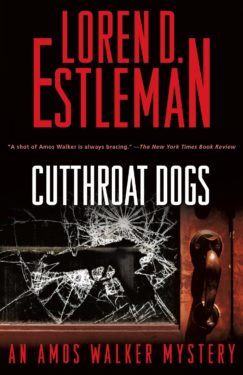 “Someone is dead who shouldn’t be, and the wrong man is in prison.”
“Someone is dead who shouldn’t be, and the wrong man is in prison.” Laguna Beach, California, 1968. The Age of Aquarius is in full swing. Timothy Leary is a rock star. LSD is God. Folks from all over are flocking to Laguna, seeking peace, love, and enlightenment.
Laguna Beach, California, 1968. The Age of Aquarius is in full swing. Timothy Leary is a rock star. LSD is God. Folks from all over are flocking to Laguna, seeking peace, love, and enlightenment. 2017: A military transport on a secret run to dispose of its deadly contents vanishes without a trace.
2017: A military transport on a secret run to dispose of its deadly contents vanishes without a trace.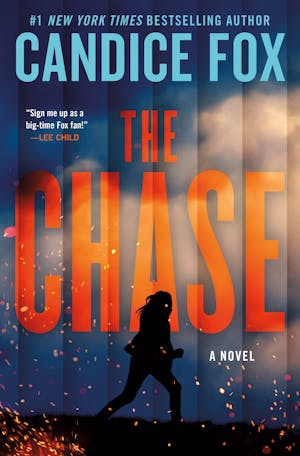
A U.S. spy plane crashes off the northern coast of Russia at the same time that a Mossad operative is abducted from a street in Kazakhstan. The two events seem unrelated, but as suspicions rise, the CIA calls in its premier operative, David Slaton.
When McGarvey’s best friend, Otto, is charged with treason, Mac and his wife, Petey, set out on a desperate odyssey to clear Otto’s name. Crossing oceans and continents, their journey will take them from Japan to the US to Pakistan to Russia. Caught in a Kremlin crossfire between two warring intel agencies, Mac and Petey must fight for their lives every step of the way.
 Cadie Kessler has spent decades trying to cover up one truth. One moment. But deep down, didn’t she always know her secret would surface?
Cadie Kessler has spent decades trying to cover up one truth. One moment. But deep down, didn’t she always know her secret would surface? Areum lives life to its fullest, vicariously through the stories of his parents, conversations with Little Grandpa Jang—his sixty-year-old neighbor and best friend—and through the books he reads to visit the places he would otherwise never see.
Areum lives life to its fullest, vicariously through the stories of his parents, conversations with Little Grandpa Jang—his sixty-year-old neighbor and best friend—and through the books he reads to visit the places he would otherwise never see. Everyone knows Lily Atwood—and that may be her biggest problem. The beloved television reporter has it all—fame, fortune, Emmys, an adorable seven-year-old daughter, and the hashtag her loving fans created: #PerfectLily. To keep it, all she has to do is protect one life-changing secret.
Everyone knows Lily Atwood—and that may be her biggest problem. The beloved television reporter has it all—fame, fortune, Emmys, an adorable seven-year-old daughter, and the hashtag her loving fans created: #PerfectLily. To keep it, all she has to do is protect one life-changing secret. Sadie Way Scott has been avoiding her family and hometown of Sugarberry Cove, Alabama, since she nearly drowned in the lake just outside her mother’s B&B. Eight years later, Sadie is the host of a much-loved show about southern cooking and family, but despite her success, she wonders why she was saved. What is she supposed to do?
Sadie Way Scott has been avoiding her family and hometown of Sugarberry Cove, Alabama, since she nearly drowned in the lake just outside her mother’s B&B. Eight years later, Sadie is the host of a much-loved show about southern cooking and family, but despite her success, she wonders why she was saved. What is she supposed to do?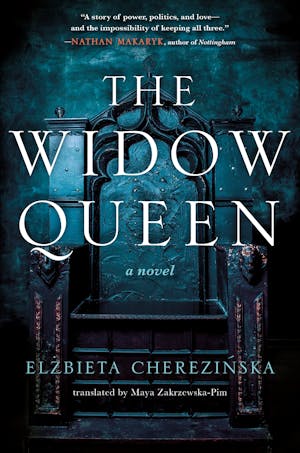 The bold one, they call her—too bold for most.
The bold one, they call her—too bold for most.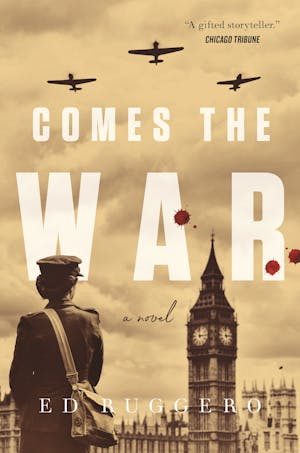 April 1944, the fifty-fifth month of the war in Europe. The entire island of Britain fairly buzzes with the coiled energy of a million men poised to leap the Channel to France, the first, riskiest step in the Allies’ long slog to the heart of Germany and the end of the war.
April 1944, the fifty-fifth month of the war in Europe. The entire island of Britain fairly buzzes with the coiled energy of a million men poised to leap the Channel to France, the first, riskiest step in the Allies’ long slog to the heart of Germany and the end of the war. Bella was once a lost dog, but now she lives happily with her people, Lucas and Olivia, only occasionally recalling the hardships in her past. Then a weekend camping trip turns into a harrowing struggle for survival when the Rocky Mountains are engulfed by the biggest wildfire in American history. The raging inferno separates Bella from her people and she is lost once more.
Bella was once a lost dog, but now she lives happily with her people, Lucas and Olivia, only occasionally recalling the hardships in her past. Then a weekend camping trip turns into a harrowing struggle for survival when the Rocky Mountains are engulfed by the biggest wildfire in American history. The raging inferno separates Bella from her people and she is lost once more.


